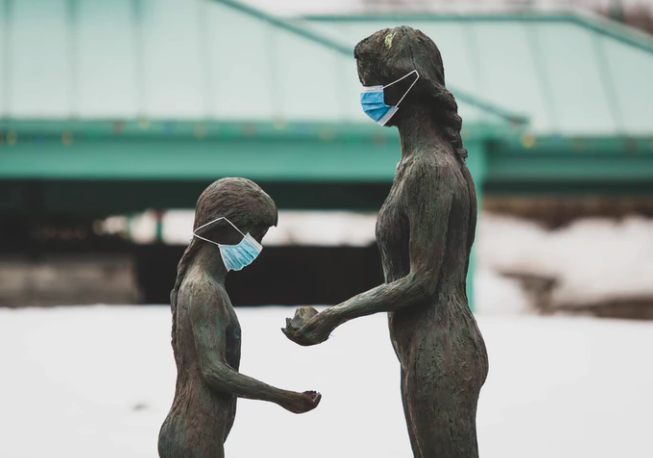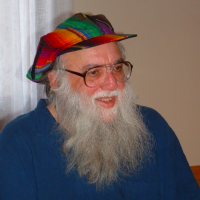We are suffering from the 11th Plague, the new coronavirus.
It is not the only plague that is afflicting all Humanity—and some of the others are afflicting not only Humankind but a million other species as well as the air and oceans of all Earth.
Which future is our future depends on us. Can we suffer from the plagues and yet—and therefore!—act on them as birth-cries of a new worldview of ecological interwovenness: seeing our communities of life as conscious interconnected ecosystems of biology, culture, and society—rooted in love and flowering in life-affirming justice?
When we do return to physical connection with our communities, God forbid that we simply rejoice in the passing of this crisis. And God forbid that we learn nothing, turning our eyes, our ears, our hearts, and our heads away.
During the struggle to end the Vietnam War, Howard Zinn told me that for most of our lives, we walk in the dark. The jagged edges of our society may stab and bloody us, but we cannot see them. The war then became, and this moment now has become, a lightning-flash to light up our reality and its failings. Let us emblazon onto our brains what we saw in that moment, so that we can act to heal ourselves, not fall back into a fake nostalgia.
What we can learn from the coronavirus crisis:
1. We really are one planet. Even prohibitions on “foreign” travel have mostly been too late to prevent transnational contagion. This is true even when human travel is the carrier. Can we translate that knowledge to even stronger cases, like the unity of our dangerously and recklessly overheated atmosphere and oceans affecting the whole planet?
2. Governments, businesses, and families can move swiftly for profound change when sufficiently motivated. Many of them at first respond antidemocratically, with silence and lies. They may take serious action only when public outcry cannot be silenced and their own power becomes precarious.
3. We can respond to the climate crisis, as we did to the coronavirus crisis, most effectively by engaging more people in active political struggle. For example: More effort to fill our activism itself with love, celebration, and community. More engagement by religious communities, especially each year as we approach Passover and Holy Week. New forms of interconnection, like solar co-ops and change-insistent groups that celebrate together (online and in-person). Increasing our direct challenge to governments that they will lose power if they don’t respond to the climate plagues as vigorously as they have to the coronavirus plague.
4. Protection for the most vulnerable has become a political issue but not yet a political given. (How do the homeless “self-isolate” without homes? How do hourly-paid workers choose to stay home and keep themselves and others safe and healthy, if they have no paid sick leave and no health insurance? How do children whose only daily bread is a school lunch eat when schools are closed? How do asylum-seekers stay healthy when they are packed into filthy detention centers or forced into jammed vehicles and sent back to tent cities? And prisoners and guards in way-overcrowded prisons?)
5. Perhaps the most obvious lesson of all: We must have universal health care. There are many different ways to get there, as many different countries have found. Get there we must.
6. We must make sure that special government and other aid goes also to those displaced and disemployed people who are worst affected by the coronavirus crisis and by the corporate Carbon poisoning of air and water, and most hurt by sudden great shifts in the economy.
7. While “social distancing” must go on long enough to make sure that the process of contagion has been halted, we must, as soon as possible, make sure that we do not make social distance or some other cramping of our lives into a habit. The isolation of our bodies from each other is dangerous to our souls and to the soul of democracy. The open society has to take place in open workplaces, open homes of prayer and Spirit, open visits to open government offices, open vigils and protest rallies, open hugs, and handshakes.
What did we learn? That all Earth and all Humanity are intertwined, a Grand Ecosystem connected by the Breath of Life and tinged with Divinity—and that efforts by any part to subjugate the rest will destroy us all.
~
Adapted from Dancing in God’s Earthquake: The Coming Transformation of Religion by Rabbi Arthur Ocean Waskow Copyright © 2020 by Arthur Ocean Waskow. Published by Orbis Books. Used by permission.











Read 3 comments and reply